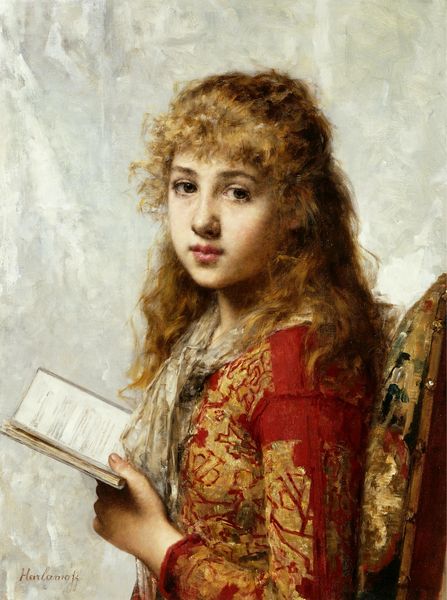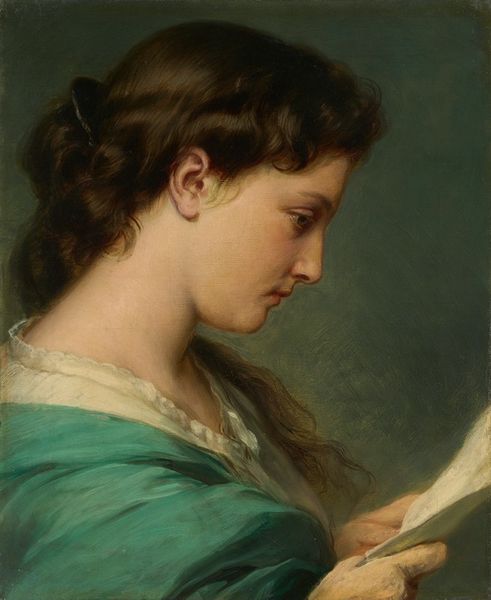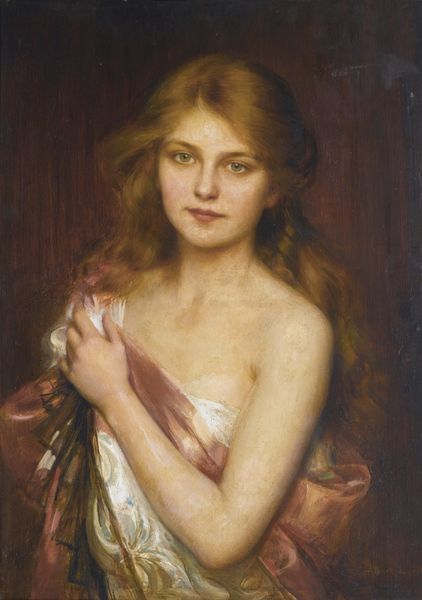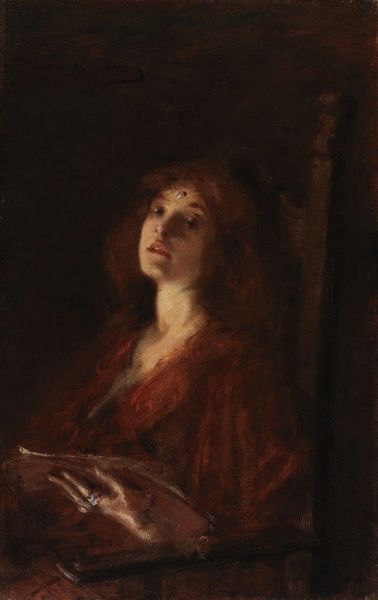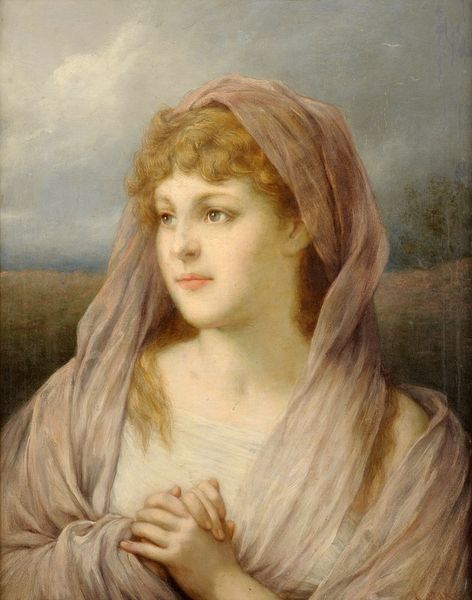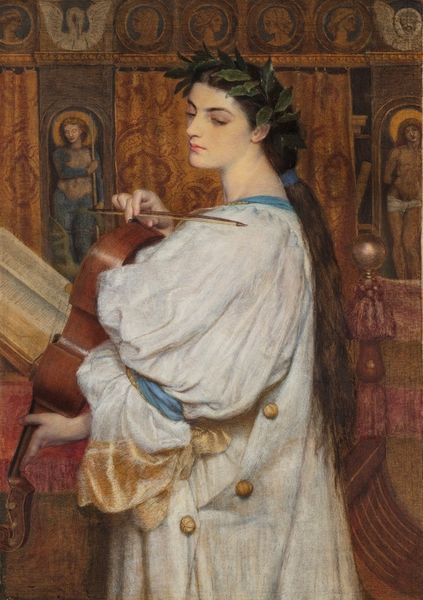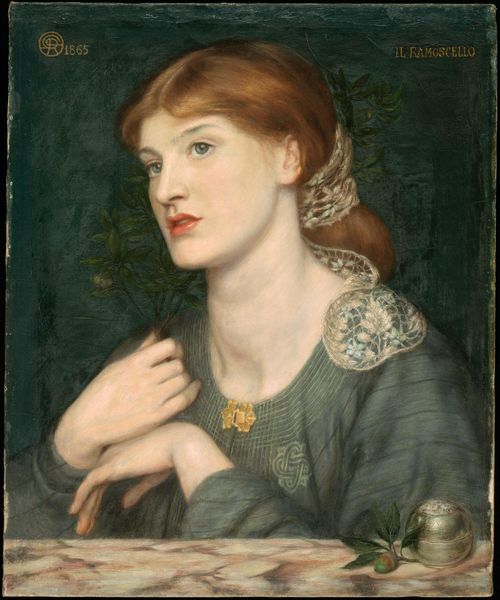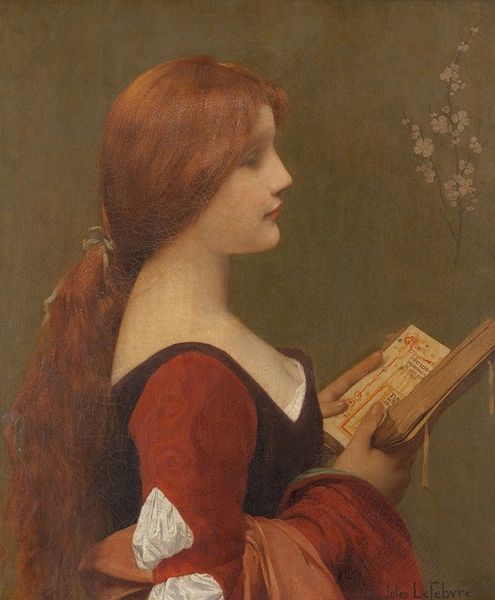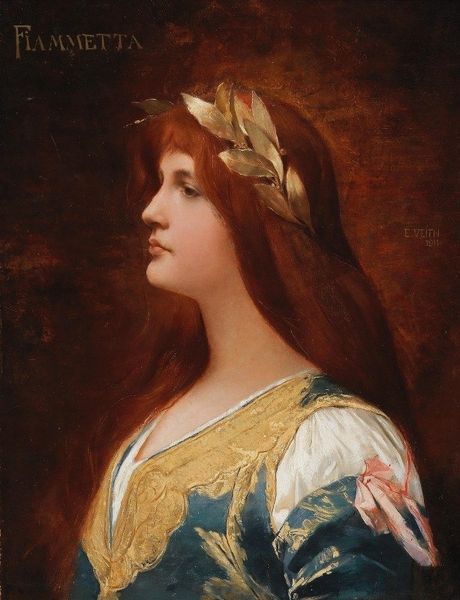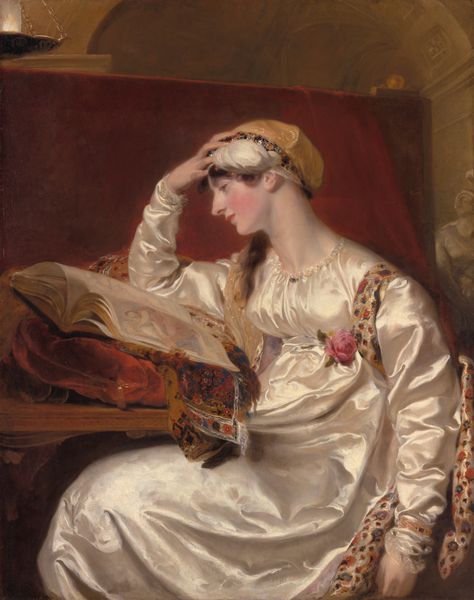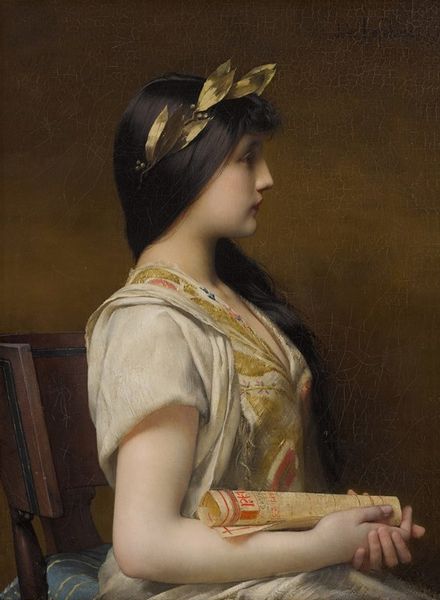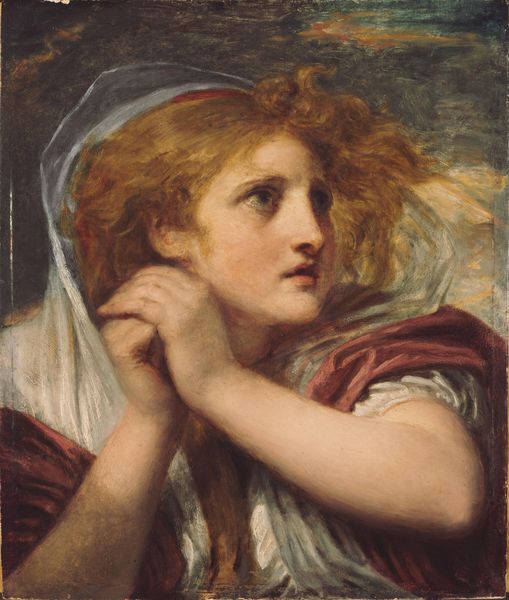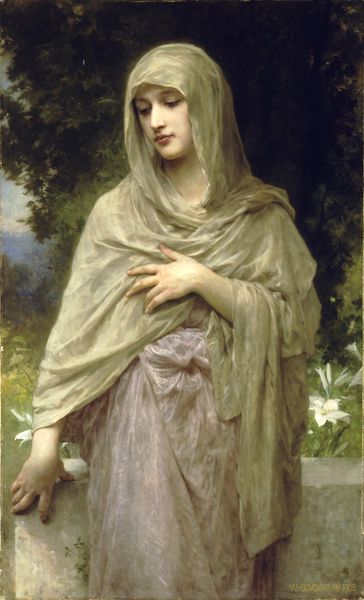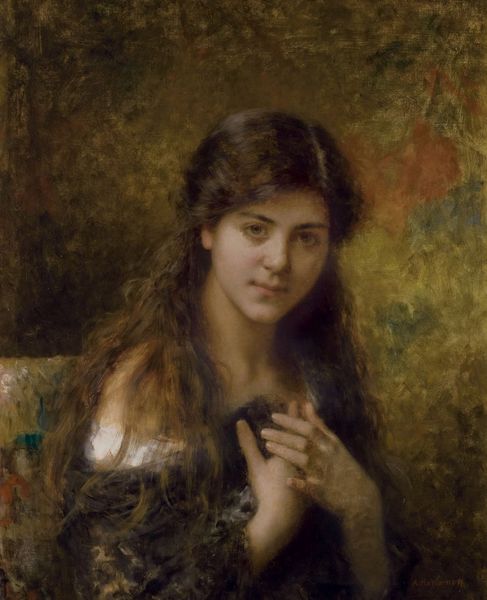
Copyright: Public domain
Curator: Immediately, what strikes me is this overwhelming sense of melancholy. Her gaze drifts off somewhere beyond the frame. It feels like a quiet grief hanging in the air. Editor: Indeed, a rather somber portrayal. What we’re looking at here is Thomas Francis Dicksee's "Ophelia," painted in 1864. The choice of subject places it within a long tradition of depicting Shakespeare's tragic character, a motif quite popular during the Victorian era. Curator: The colours are lovely, though subdued, fitting to the sorrowful mood. There is that pale luminescence in her skin, that pearl necklace, which contrasts against the deep shadows of the background. The way her hair falls about her shoulders—it feels heavy, weighed down. Editor: Absolutely. Dicksee situates Ophelia not in the throes of madness by the brook, but in a moment of introspective sadness. Victorian society had a particular fascination with female madness and Ophelia was seen, not necessarily as insane, but fragile under the weight of social constraints and betrayals. Curator: You can sense the claustrophobia, almost. It is implied in the very tightness of the framing, the way it compresses the figure. But what I find curious is the book she holds, half-open, in her hands, like something forgotten. What is that about, do you suppose? Editor: Good question. One interpretation might consider it the text she’s meant to find solace in, but is now detached from due to Hamlet's betrayal and her father's death. Religion played a crucial role in the understanding of female identity and mental stability during the era. We also mustn't ignore the political climate, where questions surrounding the role of women were intensely debated, turning "Ophelia" into a vehicle to voice cultural anxieties about female autonomy. Curator: So it becomes less about Ophelia's individual story, and more a mirror reflecting anxieties and fixations of the Victorian age, interesting. I still keep coming back to that sense of deep inwardness, though. I suspect viewers responded powerfully to that, on a gut level, whatever the larger sociopolitical conversation happening then. Editor: Perhaps precisely so, and one of the many reasons why Dicksee's rendition of Ophelia continues to intrigue us to this day. Curator: Indeed, a melancholic glimpse through time.
Comments
No comments
Be the first to comment and join the conversation on the ultimate creative platform.
